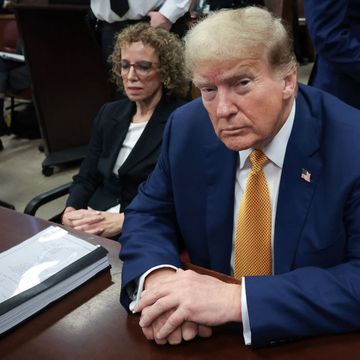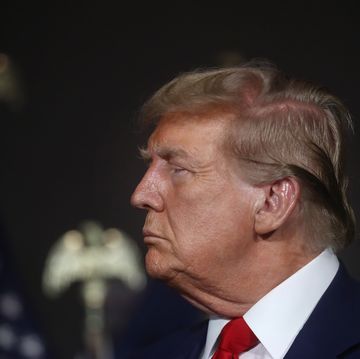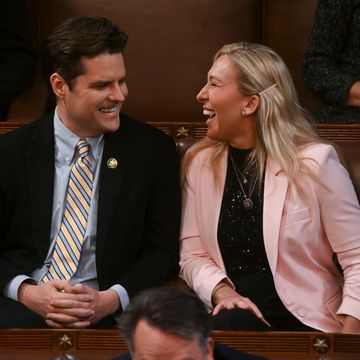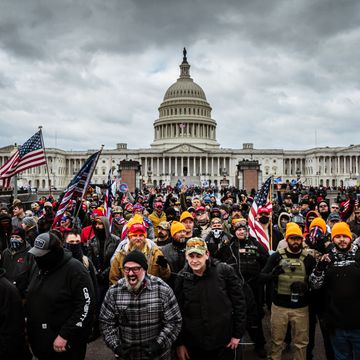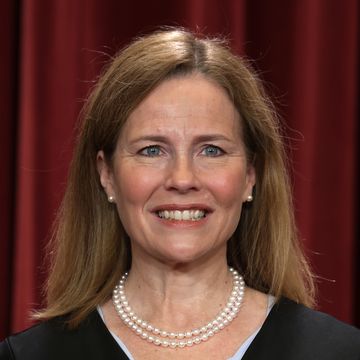George Effing Will, conservative public intellectual and extremely bad baseball writer, has nurtured within himself a sweet tooth for a lot of the worst ideas in politics -- many of them so bad that even the Rehnquist court turned up its nose at them. He flirted for a while with the term-limits crack pipe. He tried his hand at climate change denial, until enough people wanted to feed him to a starving polar bear that he backed off. I liken these odd enthusiasms to a old sheepdog gone out to play in the yard with puppies, or to your Uncle Manny's trying to do the Electric Slide after a couple of Harvey Wallbangers at a big family wedding.
Now, though, he's signed onto a new scheme to promote The Worst Idea In American Politics -- The Balanced Budget Amendment. Yes, friends, apparently Alexander Hamilton has been rendered a RINO and dispatched from the clubroom of conservative thought in favor of every two-bit talk-radio host in America. This proposal does not begin promisingly.
From the Goldwater Institute, the fertile frontal lobe of the conservative movement's brain...
Frontal-lobe dementia is a terrible tragedy.
...comes an innovative idea that is gaining traction in Alaska, Arizona and Georgia, and its advocates may bring it to at least 35 other states' legislatures. It would use the Constitution's Article V to move the nation back toward the limited government the Constitution's Framers thought their document guaranteed.
Well, if it's "gaining traction" in those three places, it is certain to be moving the nation, which always has followed Georgia's lead in social policy, and Alaska's lead in fiscal innovation.
Total federal government outlays shall not exceed receipts unless the excess of outlays is financed exclusively by debt which initially shall be authorized to be 105 percent of outstanding debt on the date the amendment is ratified. Congress may increase the authorized debt only if a majority of state legislatures approve an unconditional, single-subject measure proposing the amount of such increase. Whenever outstanding debt exceeds 98 percent of the set limit, the president shall designate for impoundment specific expenditures sufficient to keep debt below the authorized level. The impoundment shall occur in 30 days unless Congress designates an alternative impoundment of the same or greater amount.
So what we are going to do here is eliminate Congress's power of the purse in order to let the president impound money -- in other words, we are going to constitutionalize something Richard Nixon did that damned near got added to the bill of particulars for his impeachment.
And any bill for a new or increased general revenue tax shall require a two-thirds vote of both houses of Congress -- except for a bill that reduces or eliminates an existing tax exemption, deduction or credit, or that "provides for a new end user sales tax which would completely replace every existing income tax levied by" the U.S. government.
The funny thing here is that California, the economy of which is large enough for it to be considered an independent country in that regard, had this two-thirds foolishness for years and, every time the economy went sour, the state was paralyzed in dealing with it. (I may be cynical, but I think that's what Will really has in mind for the country.) And this seems like an awful lot of fuss and bother to go to to whack the poor and the middle class with a sales tax.
Now, leave aside questions about this tax policy, or about the wisdom of constitutionalizing any tax policy...
Let's blow up the constitutional order in order to see what pretty colors the sky turns.
It provides, in the same sentence, two amendment procedures, one of which has never been used -- the calling of a convention by two-thirds of the state legislatures. Many prudent people -- remembering that the 1787 Constitutional Convention's original purpose was merely to "remedy defects" of the Articles of Confederation -- recoil from the possibility of a runaway convention and the certainty that James Madison would not be there to make it turn out well. The compact, however, would closely confine a convention: State legislatures can form a compact -- a cooperative agreement -- to call a convention for the codified, one-item agenda of ratifying the balanced-budget amendment precisely stipulated in advance.
Having hijacked one himself, Madison was an opponent of revisionist constitutional conventions for the rest of his days. It is not clear at all that some jerry-rigged compact between several states could limit the convention's purview to simply the Worst Idea In American Politics. That's why so many constitutional lawyers look at the notion of a new convention the way some people look at Level 5 biotoxins.
George's enthusiasm here is easily explained. The government has done things he doesn't like on behalf of people for whom he doesn't give a damn. (The way you know that is that the last third of the column is a states-rights brief, and he knows damned well what that means.) Somebody give Uncle Manny another drink and pour him into a cab.

Charles P Pierce is the author of four books, most recently Idiot America, and has been a working journalist since 1976. He lives near Boston and has three children.






